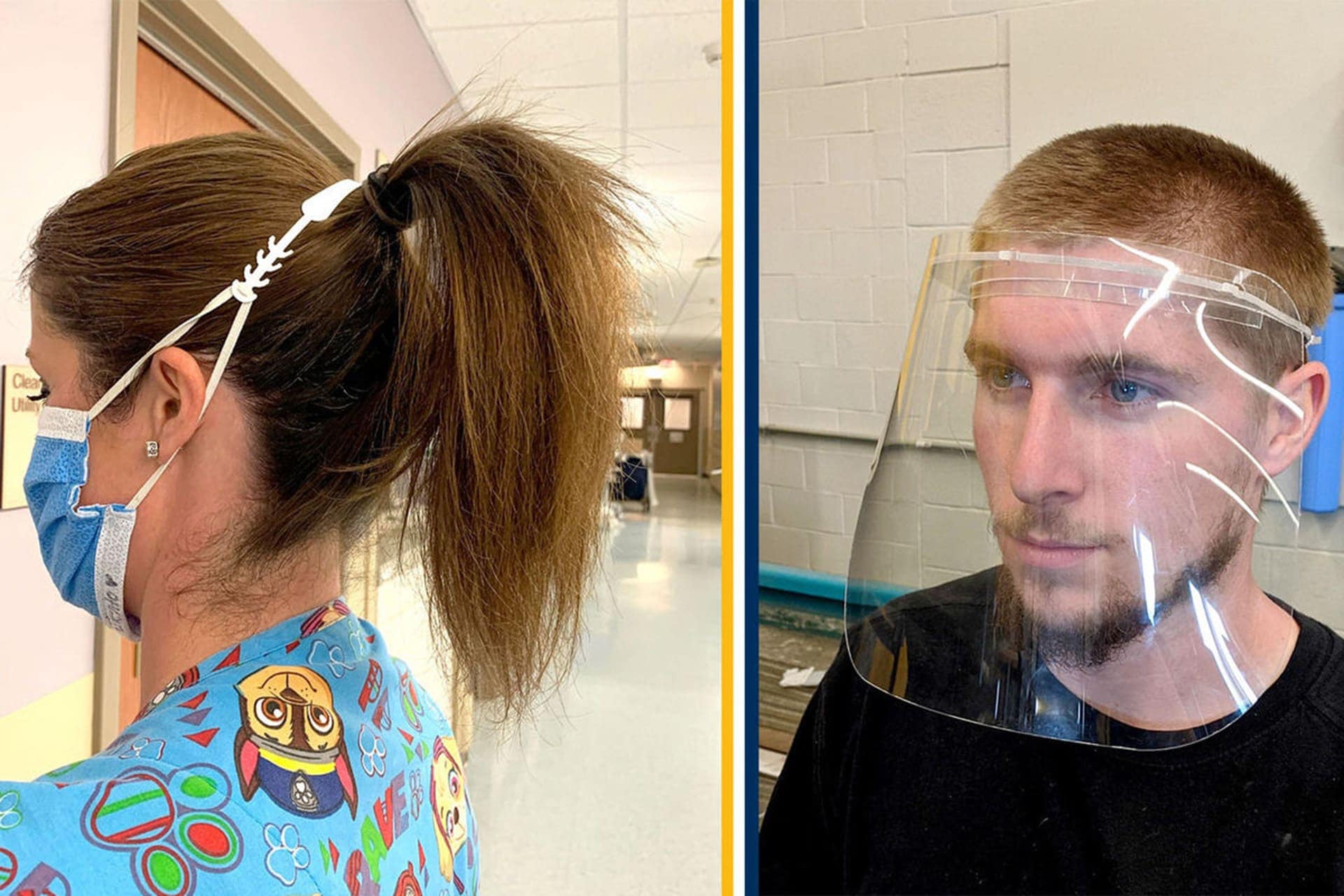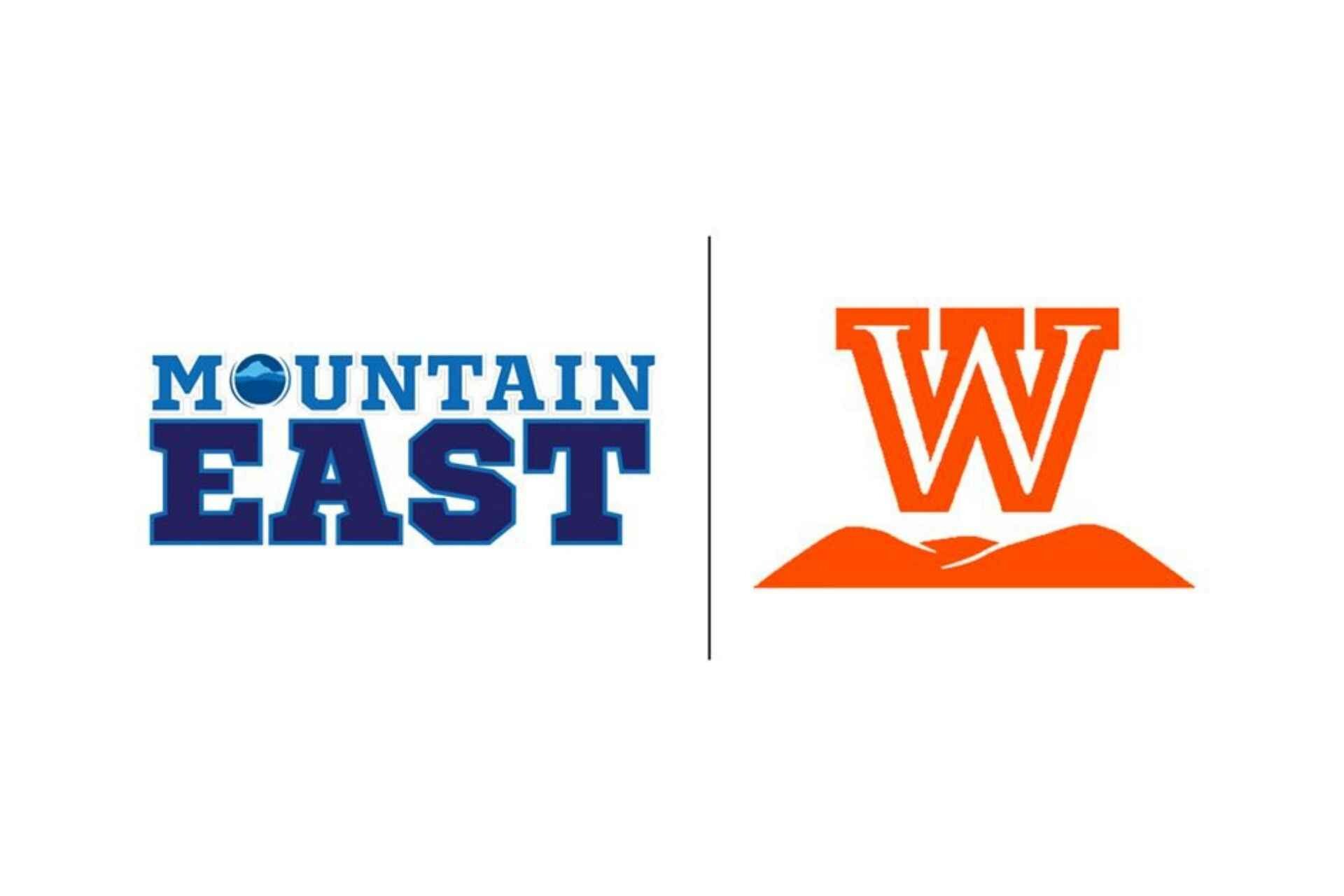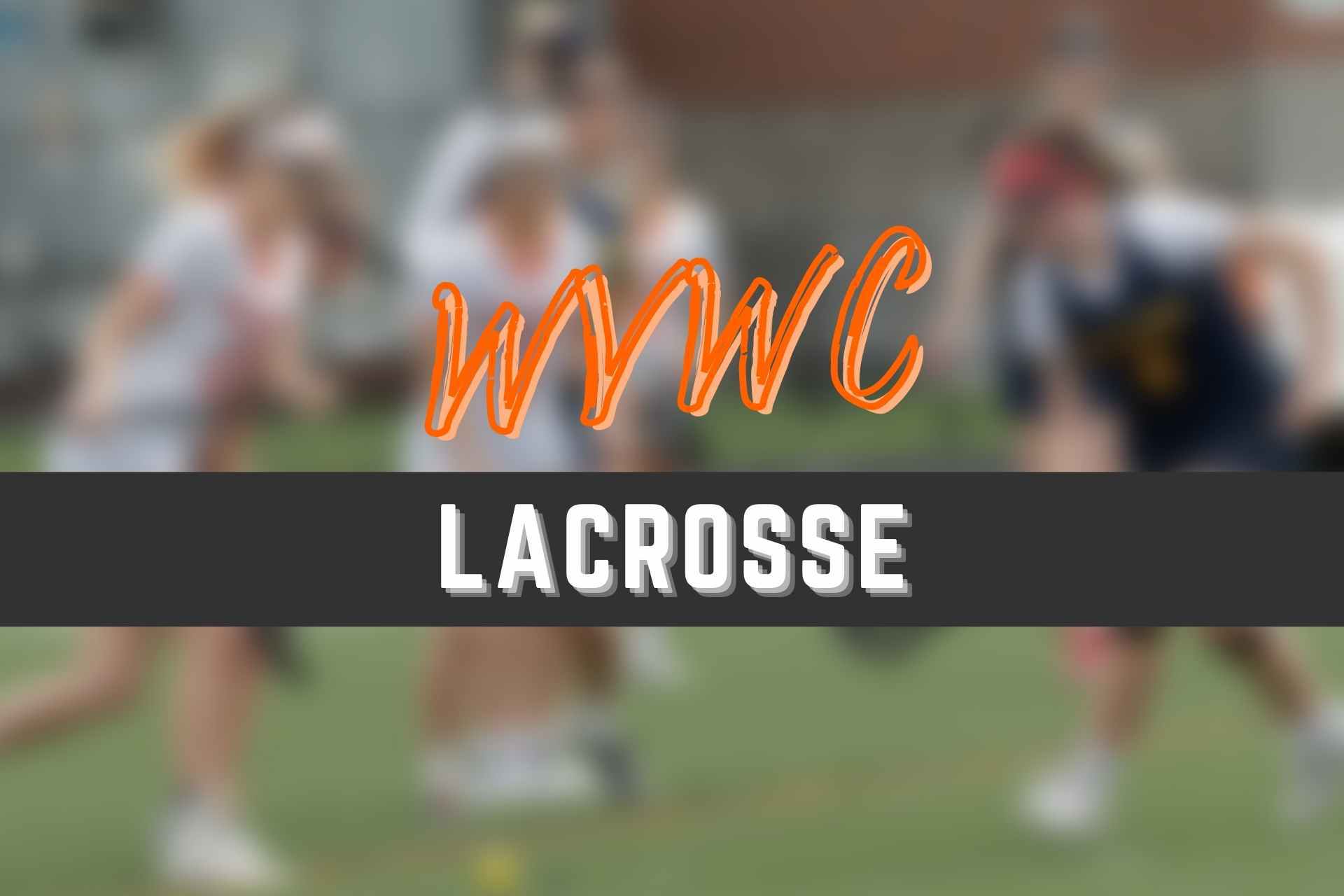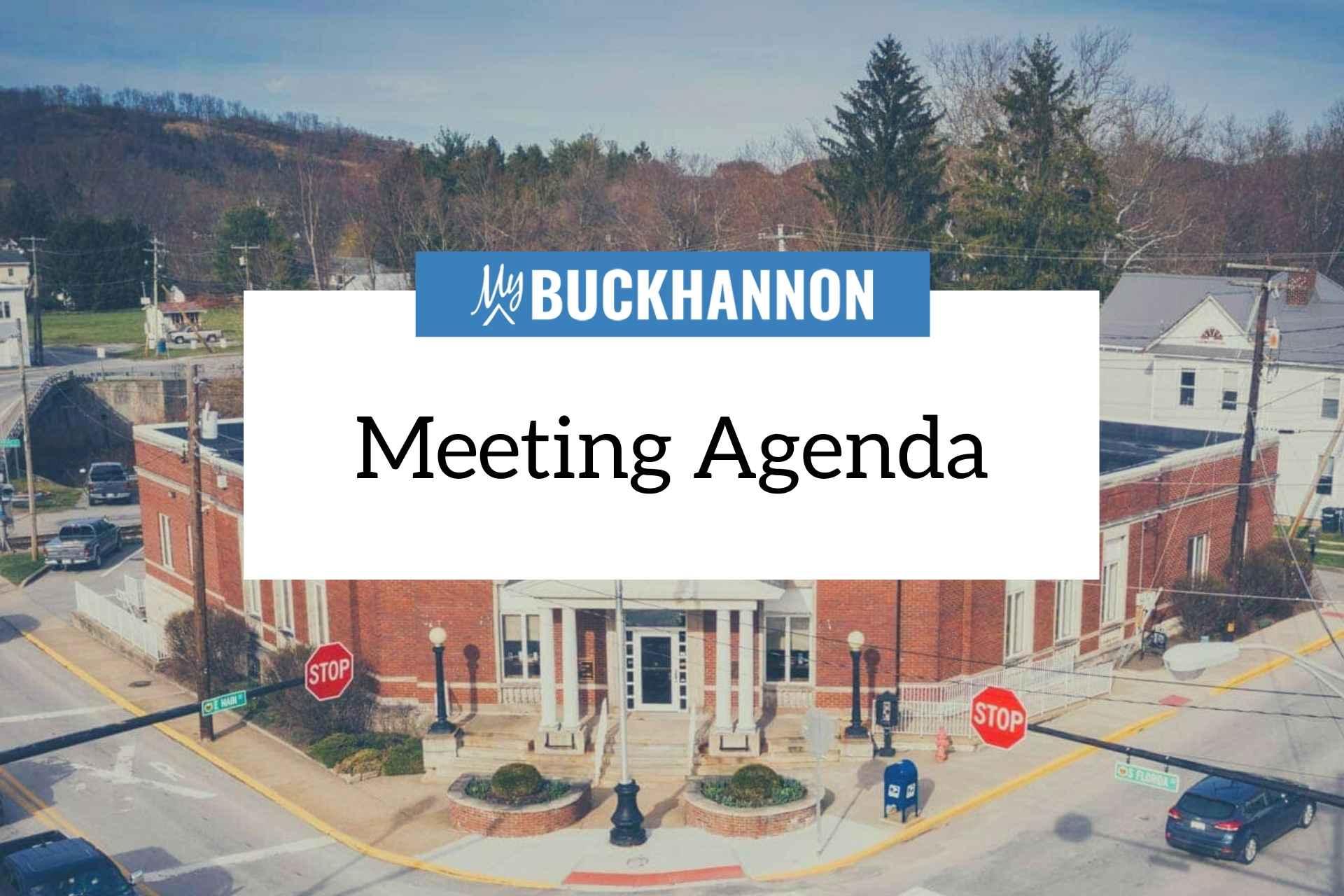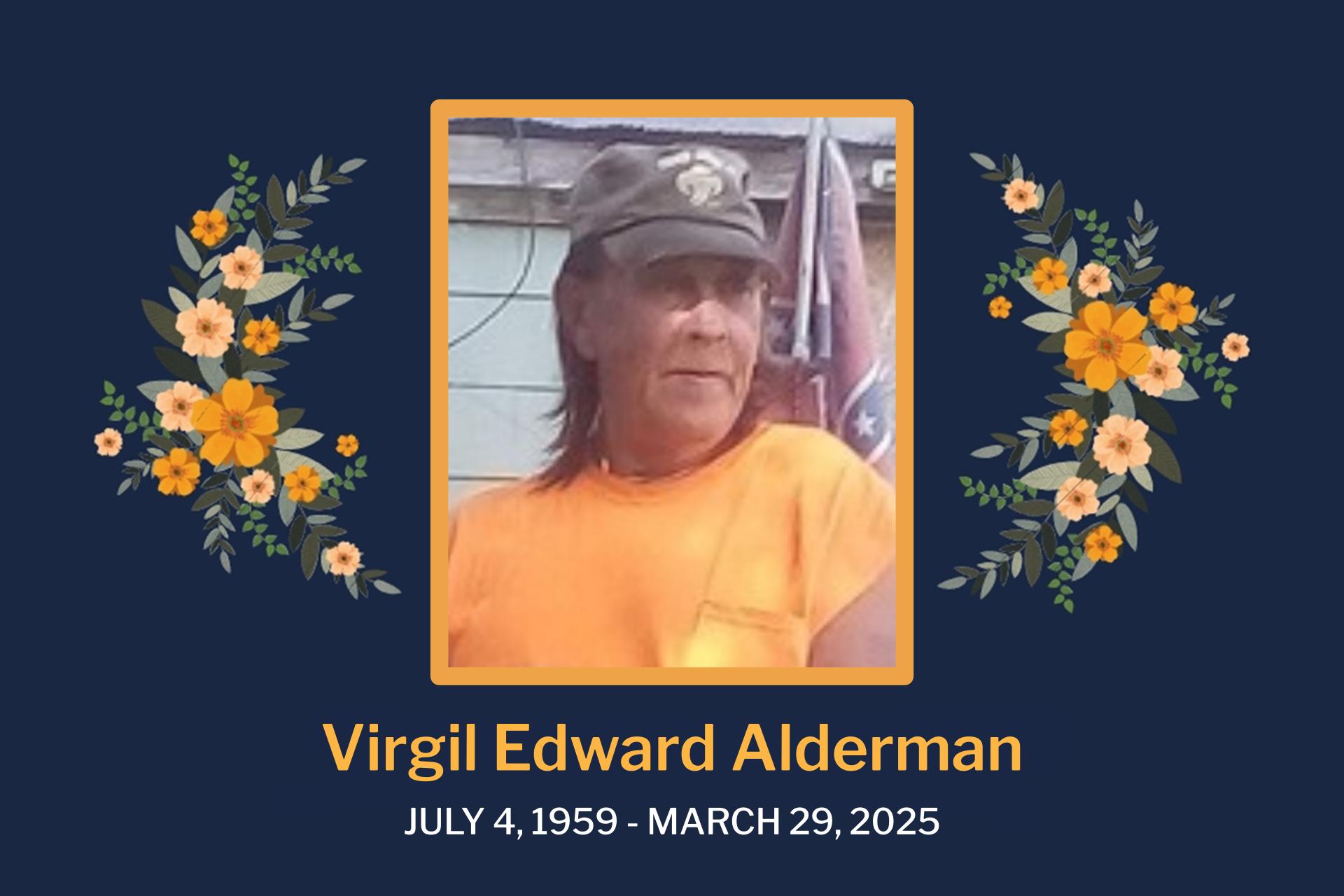Engineers in the Benjamin M. Statler College of Engineering and Mineral Resources at West Virginia University are using their expertise and equipment in a campus-wide effort to create personal protective equipment to keep up with the needs of health care providers in the fight against the COVID-19 pandemic.
Josh Bintrim and Kelsey Crawford, both Statler College graduates and Innovation Hub shop managers, have worked in collaboration with Hub Director Gene Cilento, Assistant Director Kolin Brown and health care professionals at WVU Health Sciences Center to design surgical mask extenders, face shields and intubation boxes for use in medical facilities.
Since initial production began two weeks ago, the Innovation Hub, a new prototyping center in development in the Statler College, has gone through multiple design iterations of products with input from physicians on the front lines of the pandemic.
The team has distributed more than 3,000 surgical mask extenders to local medical facilities, with calls coming in from California to Massachusetts, and even Ireland, requesting supplies and templates to create the mask extenders.
Now that medical professionals are required to wear surgical masks throughout their entire shift, there have been numerous reports of the masks causing irritation to the skin behind the ears. The mask extenders created in the Innovation Hub reduce the pressure behind the ears, affording the user an increased measure of comfort.
As long as supplies last, Bintrim and Crawford can use a laser cutter to create 300 extenders every hour.
“Sourcing materials has been a big challenge,” Crawford said. “The response from the maker community has been great, but it has led to a shortage on clear, thin plastics. We have reached out to various companies and are adjusting previous designs to fit the materials that are available.”
To maintain production of the face shields, the team is in need of 4 feet by 8 feet sheets of 0.03, 0.04 and .125 inch polycarbonate and 0.5 inch spools of elastic fabric, at least 6 inches long.
The team hopes to have an additional 3,000 surgical mask extenders, approximately 2,000 face shields and 40 intubation boxes completed and distributed to WVU Health Sciences Center and J.W. Ruby Memorial Hospital by the end of the week.
“Parsing through all of the ideas and narrowing our focus on what we could do the fastest was a big challenge,” Bintrim said. “We went from 3D printing a face shield visor in five hours to completely redesigning the entire system to make an entire face shield in three minutes.”
The Innovation Hub has made the directions for creating the face shields publicly available. The downloadable (231KB .zip) file includes face shield, visor and visor insert templates. See assembly video and materials required at bottom of article.
While the facility is not a manufacturing center, the team hopes that the templates will be used by companies who have the capacity to undergo mass distribution.
“Obviously we wish that we could do everything, but we only have limited equipment and man hours,” Bintrim said. “I have always said that we are the college of engineering and that we should be the engineers for WVU. We now have a major collaboration between ourselves, HSC, Davis College and Eberly College and it allows us to do and be just that.”
Now that the mask extenders and face shields have been in use for several days, Bintrim and Crawford explained that the feedback from health care workers has been very positive.
“Everyone has been extremely grateful for the efforts that everyone is doing at WVU,” Crawford said. “We have had nurses and doctors almost in tears as they thank us.”
“The responses have been overwhelmingly positive, and people are incredibly thankful,” Bintrim said. “The hardest part is trying to tell everyone that we are the ones that are thankful for what they do and the risks they take every day by just going to work. We are just trying our best to support them in the fight.
To make donations of materials, questions regarding templates or distribution, contact Gene Cilento at Gene.Cilento@mail.wvu.edu or by phone at 304-293-4088.
